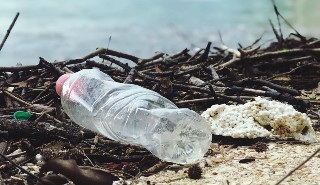Chemical pollution has passed safe limits, study finds
18 January 2022

The amount of chemical pollution in the environment has surpassed the level at which global ecosystems can cope, a new study contributed to by the University of Reading has concluded.
An international team of scientists found that the level of manmade pollutants, such as plastics, pesticides and antibiotics, has risen to the point where they will affect the planet’s natural processes, established over the past 10,000 years.
The authors of the report, published in the journal Environmental Science & Technology, warn that caps will need to be placed on many of the 350,000 synthetic chemicals that are causing environmental harm.
Damage includes pesticides that kill pollinating insects that support global food production, and litter and toxic chemical discharges that end up on the world’s highest peaks and in the depths of the oceans.
Professor Chris Collins, Professor of Environmental Chemistry at the University of Reading and a co-author of the study, said: “It is often difficult to evaluate the burden of all the hundreds of thousands of chemicals at a global scale. Usually single pressures like CO₂ are considered on their own, but this research offers a much more complete impression of what pollution is doing to the planet.
“The findings clearly demonstrate that the amount of synthetic chemicals currently being dumped into the environment in is too high. Just as the world is battling to reduce greenhouse gas emissions, we also need caps on plastic production and other pollutants to prevent further environmental harm.”
Chemical pollution is one of a number of environmental threats scientists have identified as having increased to unsafe levels. Others include global temperature rise, habitat destruction and biodiversity loss.

